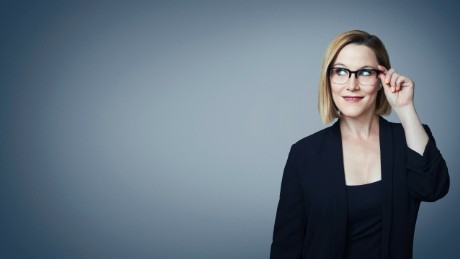S.E. Cupp is a CNN political commentator. The views expressed in this commentary are solely hers. View more opinion articles on CNN.
(CNN)It's happening. The US Centers for Disease Control and Prevention has liberated Americans who are fully vaccinated against Covid-19 from our masks. Indoors and out, in most situations, we can finally roam face out again.
After a year of stuffy-face condensation, fogged-up glasses, smeared lipstick, "mascne" and "I can't tell who that is" polite nodding, won't it be spectacular to feel the sun on our cheeks and the wind on our teeth?
Of course, all of the nuisances that came with masking up were worth it to keep us safe from the virus (and there are many circumstances ŌĆö flying in an airplane, for example ŌĆö in which I'm likely to continue the practice in the future).
But the urgency of mask-wearing also prompted an embarrassing cultural low for America, as former President Donald Trump and his supporters ŌĆö most recently former Alaska governor (and former GOP vice presidential candidate) Sarah Palin ŌĆö politicized the science of health and safety by mocking masks as unnecessary, unmanly and ... wait for it ... an affront to personal liberty. Fox's Tucker Carlson even grotesquely implored his millions of viewers to call the police on parents whose kids wear masks outside. Good riddance to all of that garbage, hopefully.
Except now that vaccinated adults and teens can revel in their rediscovered lower faces, we still don't know what to do about our kids.
Children under the age of 12 aren't eligible yet for vaccines, so how do we keep protecting them?
The answers from experts aren't exactly clear.
Dr. Anthony Fauci, the nation's top infectious disease expert, said that children should continue wearing masks, particularly indoors.
Dr. Lucy McBride, an internist in Washington, DC, wrote in the Atlantic that she tells her patients not to mask kids outside, that "for most young people, the social and emotional benefits of taking masks off outdoors greatly outweigh the personal and public-health advantages of keeping them on."
That seems like a fair point but notice she didn't say that there aren't any public-health advantages to masking ŌĆö there are, and the science has been very clear on that.
Schools are debating what to do about masks in classrooms for the fall, and states and local municipalities are making changes to their rules (in schools and for businesses and public places where children under 12 are likely to go).
What does this all mean? It appears to mean that masking up our kids will be a largely situational endeavor, and that it will mostly be up to parents to decide.
That's fine with me, to be honest. While clear and decisive guidance from experts is always preferable, there are plenty of reasons parents should follow their instincts and do what's best for their kids and their communities.
In my Connecticut town, for example, the two-week positivity rate is a mere .08%. My 6-year-old will continue to wear a mask at school, in stores, and outdoors if playing with a lot of kids. But for small playdates in our yard and other socially distant outdoor activities, we will continue to allow him to go maskless.
If there were a Covid spike, or a higher positivity rate here, I'd feel differently. As we have from the beginning, with masks, school, travel and everything else, we follow the data, and decide accordingly.
Get our free weekly newsletter
Sign up for CNN Opinion's new newsletter.
The great thing about children is they're adaptable. My son never protests a mask and has just as much fun when he's wearing it as he does without it. I realize that's not the case for every kid ŌĆö and not easy for every parent. We all just keep doing our best.
No one wants their kids in masks forever ŌĆö they need to see other kids' faces and feel as though their expressions are being seen. The time will come, I'm certain, when masks are mostly a thing of the past. But until then, we'll just have to continue to play it safe with our kids and do what we've always done ŌĆö follow our gut.






